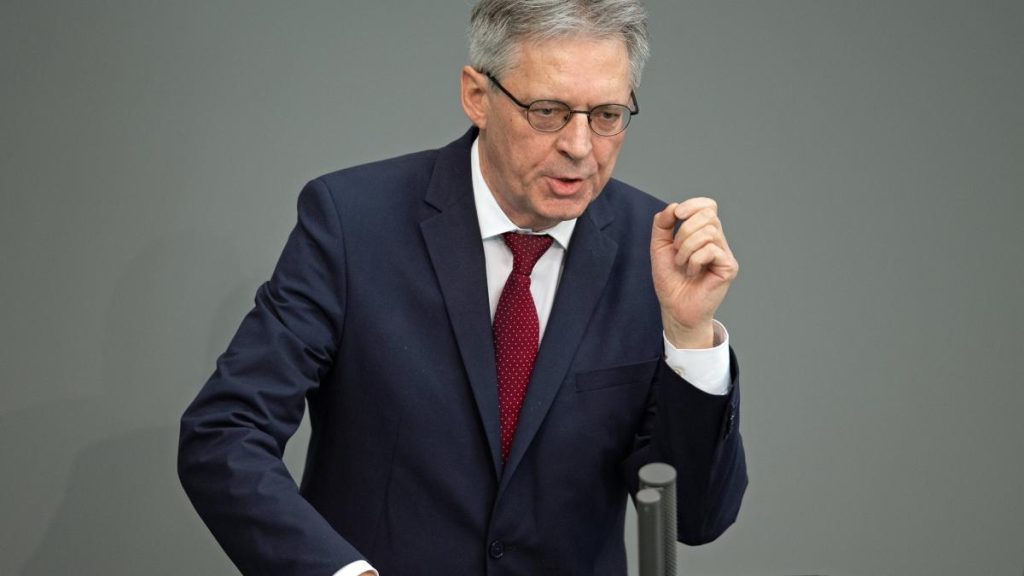The Deputy SPD parliamentary group chairman Achim Post is pushing for a suspension of the debt brake in Germany for the 2025 budget. Post stated that the focus should be on the country’s internal, external, and social security, and that these expenditures should not be pitted against each other. The SPD believes that suspending the debt brake is an option that should be considered for the 2025 budget in order to invest in the country’s security as well as support businesses and families. The upcoming debate on this issue is due to the deadline for federal ministries to submit their budget proposals. The Greens have warned against a strict austerity policy for the 2025 federal budget, citing ongoing conflicts in Europe and pressing environmental and societal issues.
The FDP continues to oppose any softening or suspension of the debt brake, with FDP budget chief Otto Fricke calling for more realism from the SPD and Greens regarding this issue. Fricke emphasized that there are no majorities to weaken the debt brake with the necessary constitutional majority, and any debate on this matter detracts from the actual task of budget policy. Despite some leeway for borrowing due to the weak economy, there is a significant funding gap expected in the double-digit billion range as the deadline approaches for ministries to submit their budget proposals to the finance ministry.
Meanwhile, the Union has criticized Finance Minister Lindner’s approach to the preparation of the 2025 federal budget, particularly his decision to forego the usual budget planning process. The Union’s budget chief, Christian Haase, called this a strategic mistake that will not address the known and foreseeable issues. Haase stated that Lindner should not have delayed the process and relied on hope, as the financial and internal coalition problems require a more proactive approach. The complexity of the situation has led to frustration within the CDU over Lindner’s handling of the budget process and his decision to skip the standard procedure.
Overall, the debate over the suspension of the debt brake for the 2025 budget in Germany highlights the differing opinions within the political parties on how to address the country’s economic, security, and social challenges. The SPD sees the suspension as necessary to ensure strong investment in the nation’s future and support for businesses and families during difficult times. The Greens are wary of a strict austerity policy and argue that investment in the future, social security, and democracy protection are more pressing priorities. The FDP remains opposed to any changes to the debt brake, citing the lack of constitutional support for such measures.
As the deadline for budget proposals approaches, the financial situation in Germany remains uncertain, with potential funding gaps in the double-digit billion range. The differing approaches and perspectives of the political parties will likely impact the final decisions on the 2025 budget and the broader economic policies of the country. The criticism from the Union highlights the challenges facing Finance Minister Lindner in navigating the complex financial and political landscape in Germany. The outcome of these debates will have significant implications for the future economic and social stability of the nation.


